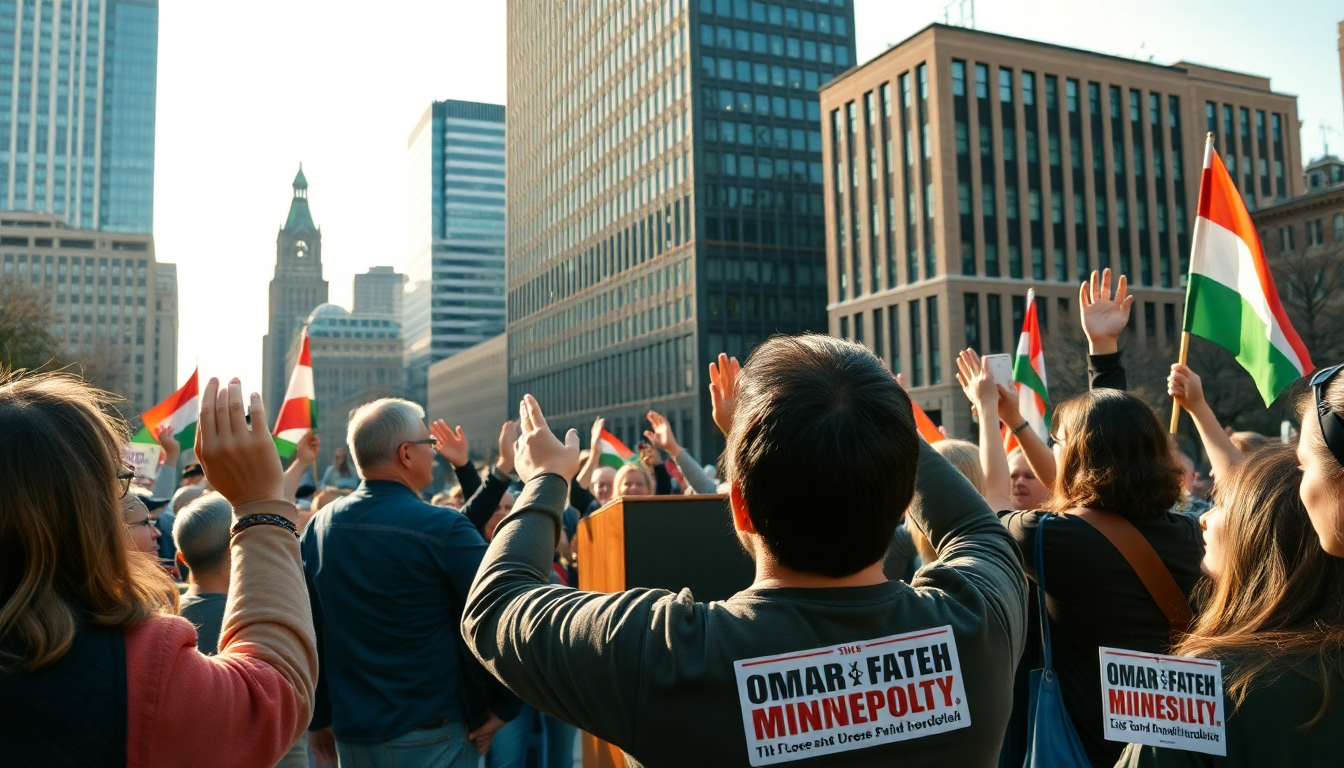Table of Contents
The political landscape in Minneapolis is experiencing a dramatic shift, largely thanks to a new wave of candidates who identify with democratic socialism. As more progressive voices enter the race, the dynamics of local politics are evolving, sparking curiosity about where the city might be headed. One candidate at the forefront of this change is Omar Fateh. In this article, we’ll dive into the recent developments surrounding his mayoral campaign, including his political rallies and the controversies they’ve generated.
Understanding the political climate
In recent years, the idea of democratic socialism has gained significant traction across the United States, and Minneapolis is no exception. Candidates like Omar Fateh are tapping into a growing voter base eager for alternatives to traditional political systems. As a Somali American, Fateh has drawn comparisons to other progressive figures, like Zohran Mamdani in New York City. This shift hints at a broader trend within the Democratic Party leaning towards more left-leaning ideologies. But what does this mean for the average voter?
Fateh’s campaign hasn’t been without its hurdles. Recently, he faced criticism for hosting a political rally that featured speeches in a foreign language and notably omitted American flags. This decision led to backlash from various political opponents, including House Majority Whip Rep. Tom Emmer, who accused Fateh of prioritizing foreign interests over American values. Can you imagine the uproar that would cause?
The political fallout from this controversy is significant. Emmer’s comments reflect a broader narrative that conservative voices often use to portray progressive candidates as disconnected from mainstream American values. This ongoing cultural clash not only reveals the deep divisions within local elections but also raises questions about the future of political discourse in Minneapolis.
The endorsement fallout
Adding to Fateh’s challenges, the Minnesota Democratic-Farmer-Labor Party (DFL) recently withdrew its endorsement amidst allegations of irregularities in the convention voting process. This move has frustrated Fateh’s supporters, who argue that party insiders undermined the endorsement process. Isn’t it interesting how internal party politics can create such dramatic ripple effects?
DFL Chairman Richard Carlbom explained that the decision came after a thorough review uncovered substantial failures in the convention’s voting procedures. The party’s response emphasizes their commitment to unity and inclusivity as they prepare for the 2026 midterm elections. Yet for Fateh, this setback poses a considerable challenge as he strives to solidify his standing within the party and among the electorate.
In a video statement, Fateh expressed his determination to keep fighting for his candidacy, criticizing the party establishment for sidelining his campaign. This sentiment resonates with many voters who feel alienated by the current political process, suggesting that internal divisions within the DFL could lead to more challenges ahead.
Implications for the future
The rise of candidates like Omar Fateh signals a notable shift in Minneapolis’ political landscape, with democratic socialism gaining traction among progressive voters. As these candidates work to address the concerns of their constituents, they are bound to encounter both support and opposition from various segments of the community. How will this shape the future of the city?
Looking forward, the implications of this political trend could be significant. If democratic socialists continue to gain prominence, they may reshape policy discussions around pressing issues like housing, healthcare, and public safety. For investors and political analysts alike, this evolving landscape presents both opportunities and challenges, especially as the electorate becomes more engaged in shaping their city’s future.
As Minneapolis navigates these changes, it will be essential for all stakeholders—candidates, party officials, and voters—to engage in constructive dialogue that highlights shared goals and values. The outcome of this political evolution will ultimately depend on candidates like Fateh’s ability to connect with a diverse electorate while tackling the urgent issues facing their city. Are you ready to see how this unfolds?


